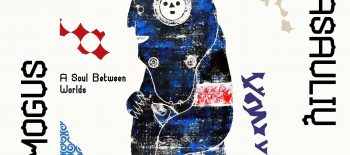Seventy years ago, Witold Pilecki was murdered in the prison on Rakowiecka Street in Warsaw. He was a Polish officer, a member of the Polish Underground State, the only voluntary prisoner of the Nazi German concentration camp Auschwitz as well as the author of the so-called Pilecki Reports.
Witold Pilecki served in the Home Army and took part in the Warsaw Uprising. After the war he continued to work towards creating a free Poland – in 1947 he was arrested and tortured by the Soviet authorities, after which he was tried and executed in 1948. After Poland regained independence, he was rehabilitated by the Supreme Court’s judgment in 1990, given the rank of colonel and awarded with the Order of the White Eagle. British historian Prof. Michael Foot named Pilecki as one of the six bravest people in the resistance movement of World War II.
Witold Pilecki presented the authorities of the Polish Underground State with the idea of getting in to the German Nazi concentration and extermination camp Auschwitz-Birkenau. Pilecki’s task was to gather information about the conditions prevailing in the camp and dispatch them to the outside world. While in the camp he also established the Union of Military Organisations, which was to prepare the uprising and the liberation of the camp. After escaping from Auschwitz, he created reports documenting the crimes of Nazi Germany that he had witnessed. Reports were passed on to the Allies and, along with Jan Karski’s activities, constitute the world’s first source on the Holocaust.
“What can humanity say today, this humanity which wants to prove the progress of culture, and set the 20th century to much higher standards compared to past centuries. Can we, people of the twentieth century, look at the faces of those who once lived and – amusingly – prove our superiority, when in our day the armed mass destroys not the hostile army, but whole nations, defenceless societies, applying the latest technological achievements,” Captain Pilecki stated in a report from 1945, described his time in the Auschwitz-Birkenau concentration camp.
Michael Schudrich, Chief Rabbi of Poland, described the heroic deeds of Witold Pileck in the following words: “This is an example of unimaginable good in times of unimaginable evil. There is more and more evidence on how Poles helped Jews during the Holocaust and paid for it with their own lives. One has to follow the example of people like Pilecki everywhere where evil is happening today.”
MFA Press Office



